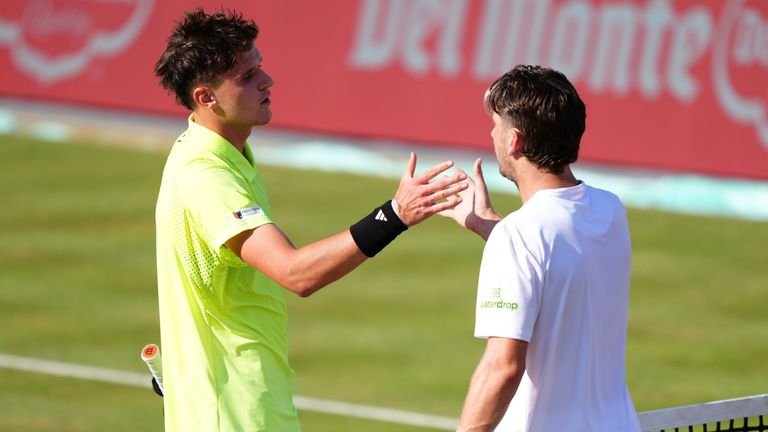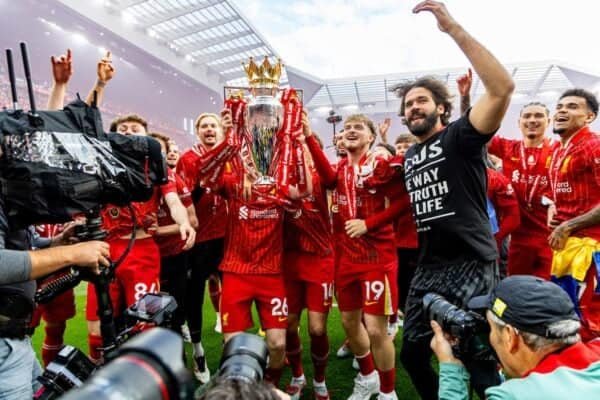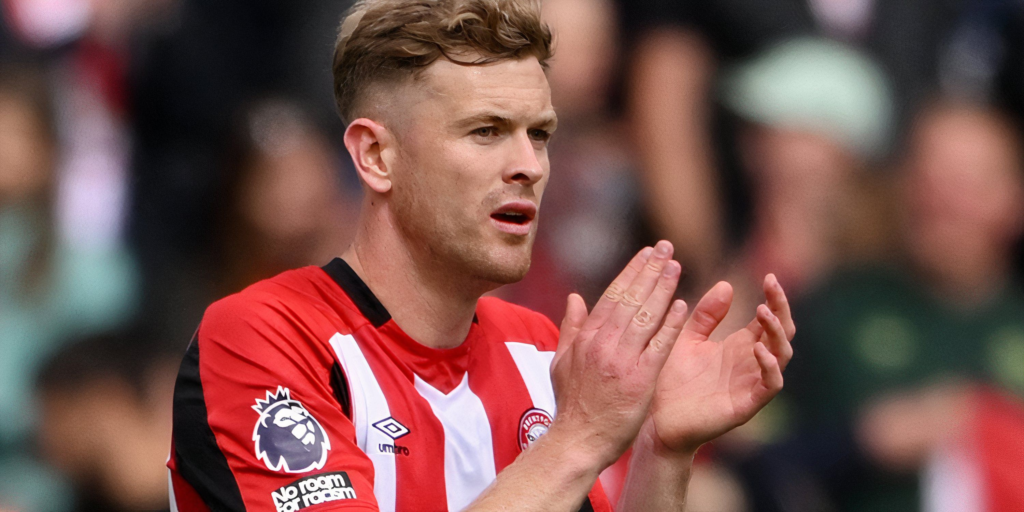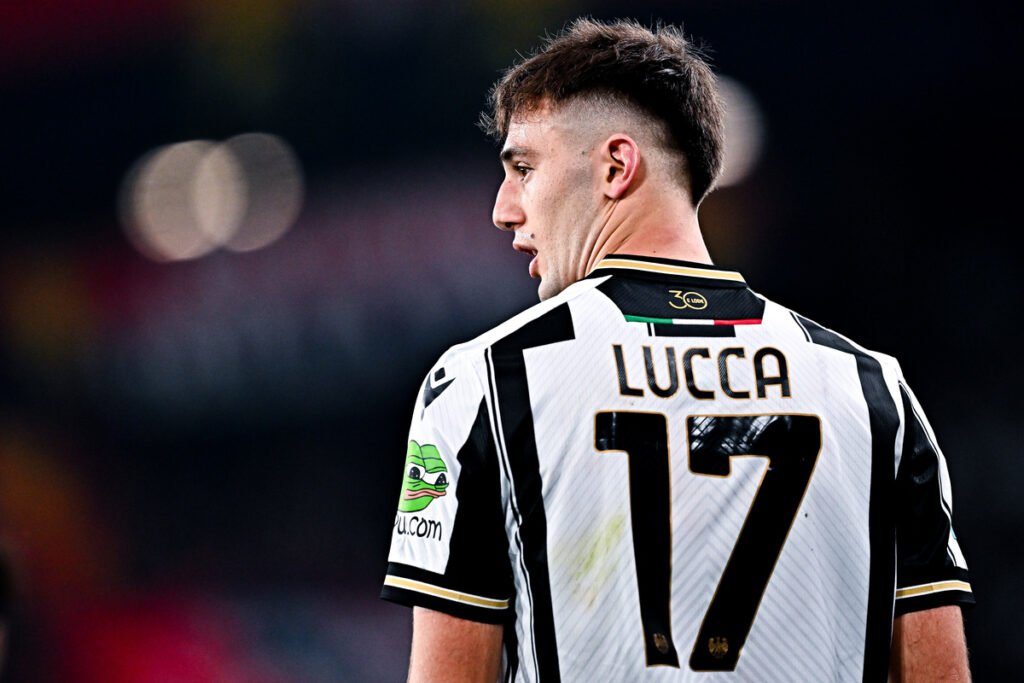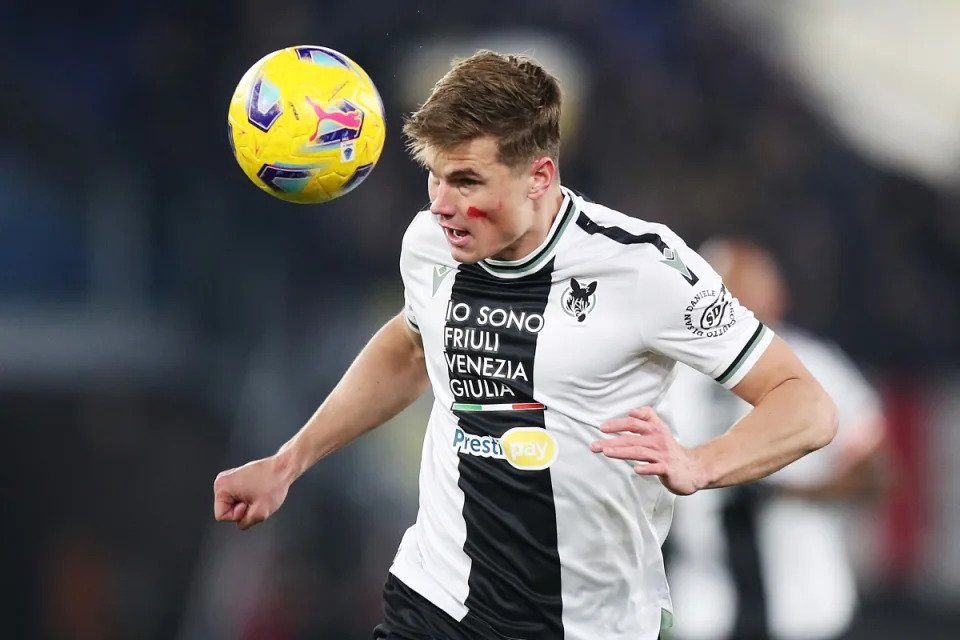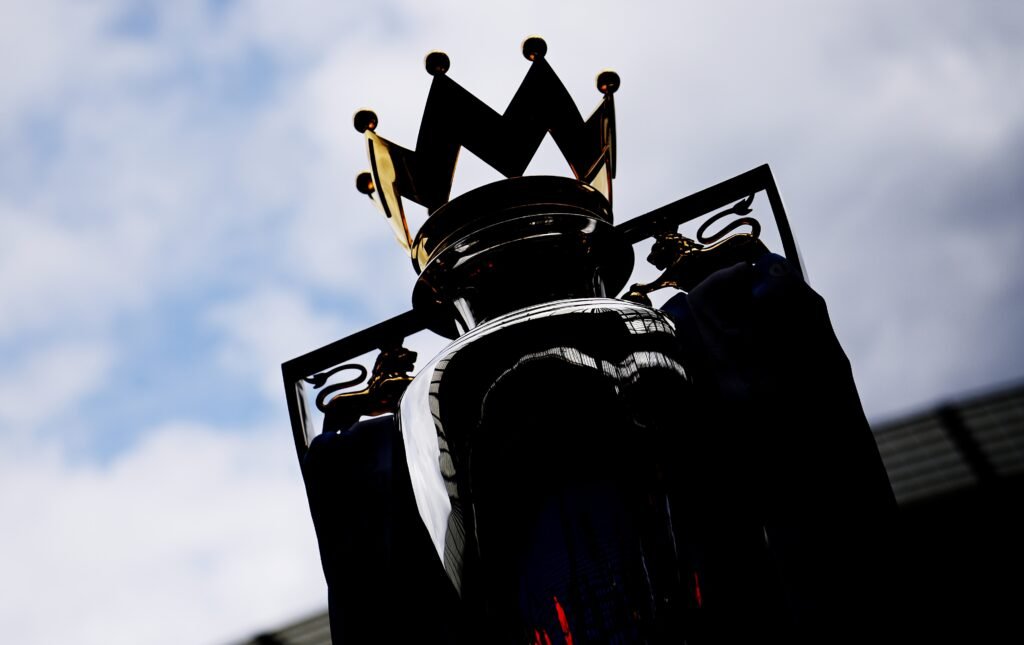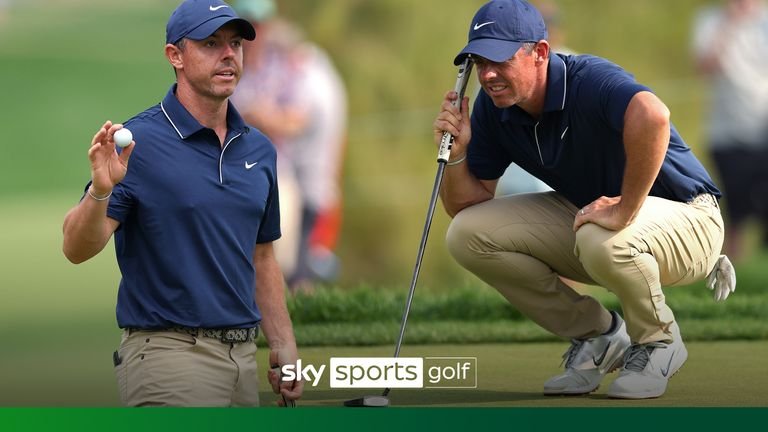“Florian Wirtz has a problem,” read a story in 11Freunde, the German football magazine. “He has already scored the goal of his life.”
It was December 2019. Wirtz was 16 and still months away from making his Bundesliga debut. Playing for Koln Under-17s against Wuppertaler SV, he received a pass from kick-off, took a touch, and lofted a shot over the opposition goalkeeper from inside the centre-circle.
It took 5.05 seconds and, long before the €136.3million (£116m; $157m) deal which is due to take him to Liverpool as potentially the most expensive player in Premier League history, it was a goal that made him a star.
“Everyone was talking about that goal,” says Martin Heck, who coached Wirtz and Koln Under-17s to the German national title just a few months before, “and he just started to get bigger and bigger. I think it was then that he recognised that football is not only about playing games and training. That was the point when his career became more public.”
He was the Jahrhunderttalent: the once-in-a-century talent.
Wirtz was raised in Pulheim, a Rheinland town of 50,000, 20km from Koln. Home had no video games and rarely a television. As a young boy, Wirtz would often go to friends’ houses to watch football.
In the summer, the whole family — Florian, his mother and father, his sister Juliane and an assortment of their eight half-brothers and half-sisters — would pile into a van and head for camping holidays. And there was always football.
Wirtz and Juliane — today a professional footballer for Werder Bremen in the Frauen-Bundesliga — were just 18 months apart in age and would play against each other in cages around the campsite or join games with other children.
It was the same at home, where footballs would be scattered around the Wirtz living room, where Juliane and Florian were always playing, one-on-one on the carpet, with cupboards and a table for goals. When Juliane made her debut for Germany’s under-15s, he was in the stands. In early 2025, when they both suffered injuries, they did part of their rehabilitation together in Leverkusen.
But back to the living room, where wine glasses got broken and where, at mealtime, even when he was carrying his plate to the table, Florian still had a ball under his feet.
“What sets him apart,” Gerardo Seoane, his future Bayer Leverkusen coach, said at a press conference in 2021, “is that he is very, very clear-headed in the final third. He has nerves of steel and keeps a picture of what’s happening, giving him the quality to make the right decision.”
By Wirtz’s own telling, those qualities can be traced back to the family’s (presumably) well-worn carpet.
“Are you the modern home office version of the street footballer?” he was asked by a journalist from Suddeutsche Zeitung shortly before the 2024 European Championship. “Are you the living room footballer?”
“Yes,” he replied, “I learnt a lot.”

Wirtz, left, in white, playing for Koln Under-17s in 2019 (Alexandra Beier/DFB/Getty Images)
At six, he joined SV Grun-Weiss Brauweiler, his local club.
His father was a coach and the long-time head of youth. Today, Hans Wirtz is Brauweiler’s president and Florian’s representative. But he is never described as a pushy parent or one who forced the game upon his son or daughter.
“As a kid, it was all about having fun while playing. For both of us, it was just cool to go to soccer games with our father on the weekends,” Florian told 11Freunde in 2022.
“He certainly wasn’t overly ambitious and he didn’t just push us to football after school. But he still taught us a lot.”
Karin, Florian’s mother, is also part of his management team. A former handball player and coach, she discovered one of Germany’s biggest handball stars, Julian Koster, when he was a child. Today, she and Hans exist between football stadiums. Whenever Juliane or Florian are playing matches, they are almost always in the stands supporting, alongside other members of their family.
“I think his parents were and still are the key to his success,” Martin Heck, his under-17 coach, says. “Away from the pitch, Flo was shy and his life didn’t move too quickly. His parents tried to protect him from some things that are not good for young players.
“I remember once there was an article in Sports Bild in Germany, where they showed a potential national team for 2028, and there was his name. I said to him, ‘Hey, did you see? You’re a national team player in 2028!’ And he didn’t even know the publication — and it’s one of the biggest in Germany.
“He had no mobile phone at that time, either. A big part of the success is the protection his family have given him. I always appreciated how they were determined not to just take the fast train to professional football, but to go the healthy way.”

Juliane Wirtz, No 28, playing for Werder Bremen (Ina Fassbender/AFP/Getty Images)
The route took him to nearby Koln, joining their academy in 2011. Heck remembers the first time he saw him play. Wirtz stood out, but not in a way that was typical.
“Flo would become my player in the under-17 team,” says Heck, “but I knew him before because my best friend was his coach for three years when he was between the ages of 10 and 13. He was that outstandingly good that you had to pay attention. So, I knew him five or six years before he came to me.
“When he was 15, he already played like a professional in the Bundesliga. It was not only his skills and his technique, but the game he played in his mind. He played football like it was chess and he did things you normally don’t see in youth players. He would think about what comes in the second or third phase, after passing the ball. It was amazing.
“But when anyone asks me, ‘What’s special about Florian Wirtz?’, I say that he has the greatest ambition I’ve ever seen in football from a player, young or old. His will to win. You could see that when he was 10 years old, when he was with me at 16 years old and nowadays, too. He can’t stand losing and that’s something he has had from the very beginning.”
From a coaching perspective, there were challenges, though. “The biggest mistake you can make is trying to change a player like him. The main thing I told him was that the game has two directions, and you have to play against the ball as well. But you don’t change his movements, you don’t change his style of shooting or passing. It’s more about how you can put him into the team in a way that everybody gets better.”
Memories from that time focus on Wirtz’s competitive spirit — the training sessions he would want extended if his team was not winning — or just his fierce love for being on the pitch. And no story captures that better than a return from injury he made in his mid-teens. After being sidelined during a long winter break, a comeback game was circled, but with conditions.
“It was clear that he would only play 50 minutes and I told him weeks before: ‘Flo, your first game back will be in Bochum, but you will only play 50 minutes’. He says, ‘OK, coach, I’m fine with it. I just want to be back playing.’
“But I knew what would happen once he got back on the pitch. So, the Monday before the game, I talked to him and said: ‘Flo, remember — 50 minutes!’ ‘Yes, no problem, no problem.’ Tuesday, Wednesday, Thursday, I said the same thing.
“So, the game starts and after half-time, everyone knew that Flo would be substituted. But when I called his name, it was like he hated me. He was swearing on the pitch. He was kicking the grass. He was waving his hands. He didn’t talk to me for five days!
“I was just laughing because we won the game. His team-mates were laughing, too, because they knew that it would happen. But this is Florian Wirtz the footballer. I’m convinced that this is the thing that’s special compared to other players.”

Wirtz playing for Germany Under-17s against England Under-17s in 2019 (Mateo Villalba Sanchez/DFB/Getty Images)
Away from the pitch, the same person is quiet and reserved. He is fiercely protective of his private life, but he is courteous to supporters and popular among his team-mates at Leverkusen and with the German national team. He remains unaffected, too.
“He’s just the same funny, friendly person that I met when he was 12,” Heck says. “He doesn’t want to be special. He doesn’t like publicity as other players do. He’s a very family-oriented guy. But he has one of those personalities that I want to see more of in professional football. He’s just a good person.”
His rise has not always been easy. In 2020, just a few weeks after the famous goal from halfway, he kicked a wasps’ nest.
In 2001, Koln, Leverkusen and Borussia Monchengladbach had made an informal agreement not to sign each other’s youth players. But two decades later, after nine years in Koln, Wirtz and his family were dissatisfied with his pathway. The first team was stuck towards the bottom of the Bundesliga and had employed three head coaches in three years.
A decision was made: Wirtz moved to Leverkusen for €200,000. The reaction was not positive. When he returned to Koln’s RheinEnergieStadion for the first time as a professional, he was booed. The issue is still contentious today, but the move was vindicated.
Leverkusen were a wealthier club with better facilities and a coach, in Peter Bosz, who trusted young players and believed in attacking football. Within three months, Wirtz had made his first-team debut, becoming the youngest player in Bundesliga history when he started against Werder Bremen in May 2020. Less than three weeks later, he became the youngest goalscorer in Bundesliga history.
From the moment he began training with the Leverkusen first team, he was adapting to senior football and developing a first touch which, today, makes him one of the most watchable players in the world.
“That was the first thing I noticed with the pros back then,” he told SZ in 2024, “is that if I didn’t take the ball quickly enough to one side when receiving it, an opponent would take it away. The experienced players in Leverkusen — particularly Kerem Demirbay — gave me the tip that I really needed to be gone with the first touch. That was something I really tried to improve in training.”
It’s a trait that any player who has faced him will recognise. Jackson Irvine, St. Pauli’s captain, faced Wirtz in the Bundesliga last season and remembers it well. “He’s so good at finding space between the lines and his end product is just fantastic,” Irvine tells The Athletic, “but he’s got this action where he shifts and shoots almost in motion.
“He just takes a touch across a defender, whether it’s a nutmeg or whatever, and he just seems to be able to just drift across you, even when you think you’ve got him going in the other direction.”
When he tore his anterior cruciate ligament in March 2022 — coincidentally against Koln — it was natural to worry about a player whose game was predicated on sharp movements.
Nobody could have known just how successful his comeback would be. Ten months later, he returned to take his place in a side then coached by Xabi Alonso. He would become the playmaking force behind Leverkusen’s unbeaten Bundesliga and DFB-Pokal double in 2023-24.
He registered 22 goal involvements in each of Alonso’s two full seasons and won the German Footballer of the Year award in 2024, which describes his impact yet still understates it. Wirtz has grown from German football’s great talent into one of its singular forces.
And he’s still improving. A Premier League scout, granted anonymity to protect relationships, notes the emotional growth in his game.
“When players used to kick him and foul him,” the scout tells The Athletic, “he could handle it, but it would break his focus. He’d sometimes target that player with his ability, like he was trying to make a point. But he doesn’t do that as much anymore. You can’t knock him out of his rhythm as easily. He doesn’t lose his calm.”
No doubt some of that treatment is waiting in the Premier League. Wirtz will arrive with his enormous price tag and technical elegance and face the usual refrains about whether a slender player with elfin features has the heart for English football.
But do not be fooled.
(Top photo: Florian Wirtz in 2020; by Wolfgang Rattay/AFP via Getty Images)

